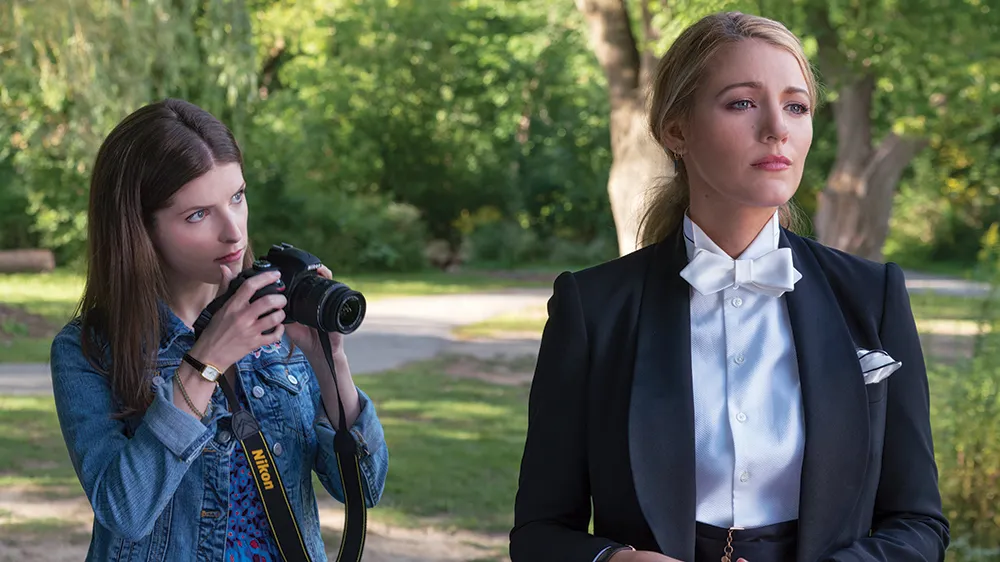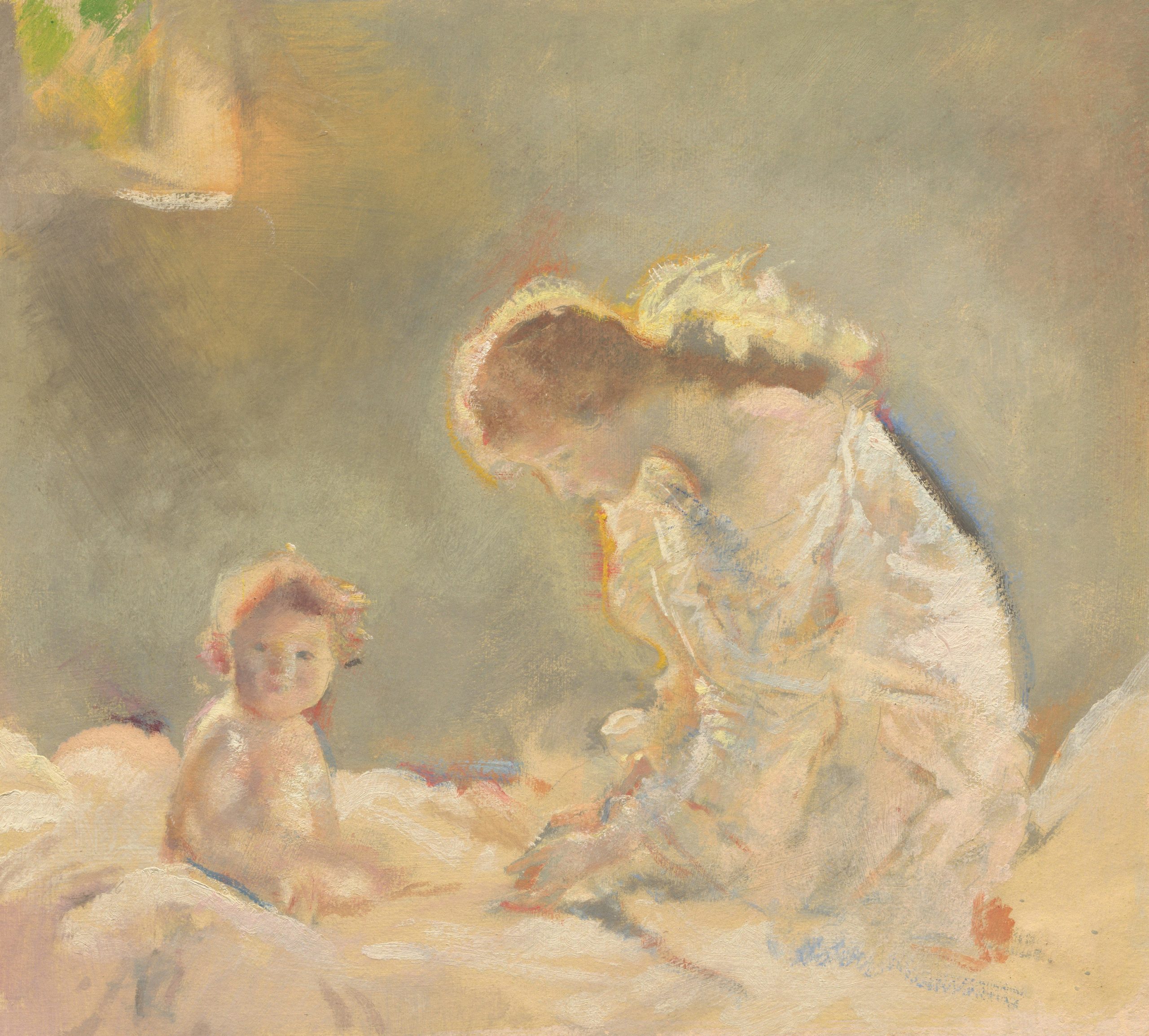Books & Culture
Dear Men, Please Stop Assigning Reading To Me
It ruins the date, but more importantly, it ruins the book

In a 1997 review, David Foster Wallace referred to John Updike as “a penis with a thesaurus.” Unfortunately, this is my type.
I have a propensity to sleep with boys who keep copies of Infinite Jest on display somewhere in their bedrooms. It’s not that this is a prerequisite — I’ve never denied myself a sexual experience purely because my partner didn’t employ the DFW bible as room decor — but rather, a not-so-happy coincidence.
This, alone, is not a character flaw. To each his own — the tome makes for an extremely reliable doorstop, and an even more effective paperweight. But willful display of the novel is often a precursor to a number of other traits in a man: namely, a tendency to recommend literature with all the presumed authority of a graduate professor, and none of the credentials. (I recently met a waiter who insisted that I peruse his thesis on Heart of Darkness before accompanying him to a screening of Apocalypse Now.)
Men Recommend David Foster Wallace to Me
For years, I scurried to complete assignments like these, but now, the didactic instinct kills the appeal — of the date, but more importantly, of the writer. Few things unflatter a man like delivering a verbal syllabus over dinner — but even more so, few things unflatter a writer like the men who so fervently recommend their works.
So to all of the single-and-looking lit-bros out there, I offer my one humble request: Please please stop recommending literature to me.
Few things unflatter a man like delivering a verbal syllabus over dinner — but even more so, few things unflatter a writer like the men who so fervently recommend their works.
The disservice in recommending literature in a romantic context has something to do with the patronizing quality, certainly, and something to do with the assumptions that underlie the impulse. But that’s not even the half of it: At the crux of the matter is the fact that it cheapens the literature itself.
For years, I couldn’t read Phillip Lopate without thinking, disdainfully, of the boy who’d handed me an early essay collection littered with his notes, watching me read from the other side of his decidedly tacky leather couch (a decade later, I fell for the very same collection in a non-fiction writing workshop). I couldn’t touch Welcome to the Monkey House without calling images of the boyfriend with the asterix tattoo (Kurt Vonnegut’s depiction of a butthole) who’d gifted me three separate Vonnegut box sets for two consecutive birthdays (and one Hanukkah), before shattering a ceramic mug of coffee against a wall behind me in fit of non-sci-fi-related rage. Milan Kundera — who later became one of my favorite writers — was long out of the question, as The Unbearable Lightness of Being had been passed to me mid-breakup with an inscription reading “I think this will be important for you.”
Nothing demolishes a great novel like the pedantic insinuation that it will be good for you.
Nothing demolishes a great novel like the pedantic insinuation that it will be good for you.
In college, I slept with a boy with a misspelled tattoo who studied poetry and wore things with the Carhartt logo positioned front and center. He was older in the way only boys in college can be, and thus I practically invited his pretension — I drank it right up. In fact, in my absolute devotion to configuring myself into the shape I imagined a “writer” might take, I was all the more open to his unsolicited criticism of my essays, and his insistence that I read Roberto Bolaño in bed before breakfast.
The problem was not what he recommended — he was slightly more creative than your basic Salinger-touting poet — but rather, the way it was presented to me. When I read fragments of Savage Detectives in his room, jammed into a clapboard house in a college town in upstate New York, it was a test — I read because I had something to prove. When I perused the novel later, it still gleamed with the residue of not being smart enough, or learned enough. For a long time, Bolaño put a bad taste in my mouth. I couldn’t read him without that bitterness.
20 Authors I Don’t Have to Read Because I’ve Dated Men for 16 Years
I only flipped through Savage Detectives again some six years later while dog-sitting for neighbors in South Brooklyn (the novel was holding a stack of neatly extracted New York Times crossword puzzles in place). Having finally outgrown my pre-ordained concept of that shimmering writerly ideal, I found that some of the residue was gone — Bolaño no longer made me feel small. I read his work sans the weighty pretenses I had come to associate it with, and almost immediately, I was infatuated.
The man now takes up sufficient real estate in my personal library. The boy with the misspelled tattoo occupies far less space.
Later on, at some point in the midst of my first post-collegiate waitressing job, I began to read William Carlos Williams voraciously. Not typically an avid reader of poetry, my adoration surprised me. I hadn’t touched his writing since the summer prior to my freshman year, when I’d devoured his poems ardently under the watchful gaze of my then-boyfriend — a devoted worshipper in the church of Williams. But at some point in between double shifts shepherding plates of smoked salmon across a dining room, I realized that I had spent so much time making a display of my readership — proving my diligence — that I’d failed to actually read the work. It was only when a line from Autumn snagged my attention, folded into an essay in The Atlantic, that I’d found myself ready to pick up one of his collections again. As it turned out, I could only love Williams on my own, far from the man who’d offered him up to me. For anyone who has ever loved any great work of poetry, this should come as no surprise.
I had spent so much time making a display of my readership — proving my diligence — that I’d failed to actually read the work.
Of course, not all writers can worm their way into the intimate alcoves of our personal libraries. In my case, the reigning odd man out is Mr. Charles Bukowski — a writer who typically falls in the gold medal range on the objective ranking of American lit-bro favorites. In direct response to the sheer volume of Bukowski recommendations I have received while lying in bed beside one partner or another, I have spent much of my adult life either trying desperately to like Bukowski, pretending to like Bukowski, or wondering what the hell I must be missing when I page through Ham on Rye.
Maybe we’re simply not aligned, Charles and I, or maybe I’m in far too deep to determine with any clarity — but it seems I am sentenced to ask myself unendingly: Did men ruin Bukowski for me, or did I never like Bukowski to begin with?
I should clarify that I welcome — even request — reading suggestions from the people close to me. In these scenarios, neither party has something to prove. The offering is not a test, nor is it a stroking of someone or other’s already over-inflated ego. It is, instead, a desire to communicate — a thing great writing should make us want to do. Good-faith literary recommendations are simply driven by the human impulse to share experiences, good or bad, with people of import in our lives. At its core, this is a poetic exchange.
Did men ruin Bukowski for me, or did I never like Bukowski to begin with?
But this particular right — the right to recommend a novel, an essay, a poem — is a right you earn. It requires the absence of ulterior motives, romantic or otherwise. There can be no desired result. And if you watch a girl while she reads William Carlos Williams, chances are, this will taint her experience.
The French have a word for their own fashionable brand of boredom: ennui. It is the sort of lassitude one proclaims with a lengthy sigh, waving a cigarette unabashedly in someone else’s living room sans permission. It’s an elitist sort of boredom, preoccupied mostly with a world-weariness — a sense of fatigue in the face of things that are not themselves, particularly boring. That is how it feels to read a work of literature that has been jammed down your throat by a man who, for whatever reason, sees romance in assigned reading. These are the books, the essays, the poems, that are gripped by a certain malaise because of the pretenses under which they came into my life. However truly I may come to love them, however profound they may be, they are colored by the expectations that came along with completing them — what I was supposed to think of them, what they were supposed to mean to me. These are the works I ticked off my list with a bleary-eyed sense of ennui — they were carrying a weight that wasn’t theirs to bear.
As most reverent readers will tell you, there can be no work of literature quite so holy as the one that finds you at the right place and the right time. That might be Didion while New York is still new, then maybe Whitehead if you choose to stick around. Perhaps Sari Botton when you leave, and not one of those can be rearranged. That’s the magic of the thing.
So to the next boy who feels that it is his obligation to fill in the holes in my library: you do not reserve the right. Regardless of the purity of your literary offerings, the result is one more volume rinsed in the brine of the romantic encounter it came tangled up inside — whole archives of paperback casualties, none of which were worth the sex.








